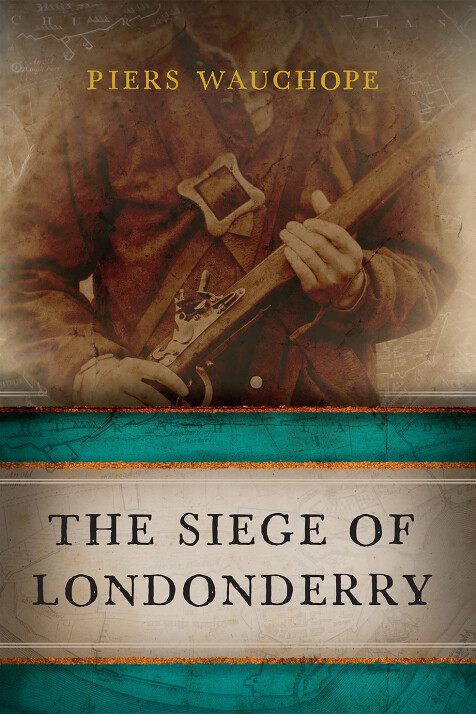The Siege of Londonderry
Piers Wauchope
"The siege of Londonderry in 1689 is one of the iconic episodes of Irish history ... The defence of Derry has attracted a number of capable authors in modern times, including Cecil Milligan, Tony Gray, Richard Doherty, Carlo Gebler, Sir Patrick MacRory and J.G. Simms. Into this distinguished group has now arrived - perhaps exploded would be more apt - Piers Wauchope ... [This book] is a fresh, critical account of the siege that is detailed, scholarly, challenging, convincingly argued and lucidly written. It makes a compelling read ... Wauchope's reappraisal is likely to be controversial. In the opinion of this reviewer, his analysis could hardly be bettered." Harman Murtagh, The Irish Sword, vol. 34, no. 136.
"The first thing to say about Piers Wauchope's The siege of Londonderry is how beautiful the writing is. Although it looks and smells like a heavy academic tome — and it is important to emphasise that the scholarship is fresh, impeccable and ground-breaking— the prose is so clear and stylish that you are caught up immediately[...] It's almost an adventure story. [...] In truth the siege was one long horror — whatever about the fighting, typhus killed almost half the population and all of the children— and Wauchope, who in the real world is a London barrister, never loses sight of that. He tells the human story with compassion and understanding, but also with a knowing irony and some dark humour. And he is a fine guide through the labyrinth of the period's complex politics and vacillating allegiances." Joe Culley, History Ireland, May/June 2023.
“Wauchope crafts memorably vivid pen pictures of key players like William Stewart, first viscount Mountjoy — naïve, honourable and unlucky — or Hugh Montgomery, the earl of Mount-Alexander, a decent, unambitious figure who was too conscious of his shortcomings as leader of the Protestant Association in east Ulster and deferred to those even less qualified. Not to forget that ‘barbarous Muscovite’ — the Baltic German, General Conrad de Rosen — who revelled in his unpopularity with James’s inner circle, was popular with the troops and possessed the self-belief of a Patton or Montgomery (of Alamein, not Mount-Alexander) … Wauchope breaks new ground in his chapters on famine and fever … He maintains that the ‘fever’ that killed most of the civilians and soldiers was typhus … The siege of Londonderry is written in a lively and engaging style, the research is thorough, and the analysis forensic, especially when Wauchope subjects Walker to a sceptical cross examination, as a barrister would a hostile witness. In sum, Wauchope performs a genuine feat of revisionism in filling out the gaps and silences in triumphalist and mendacious narratives.” Pádraig Lenihan, Irish Historical Studies, November, 2023


